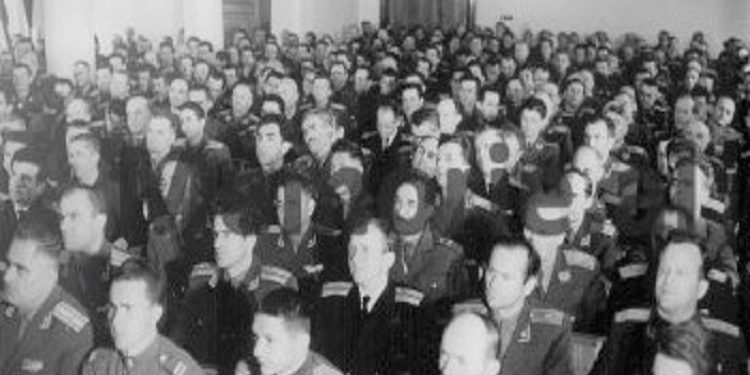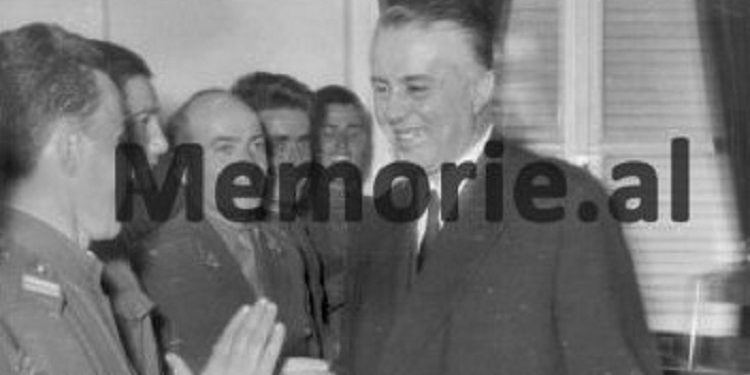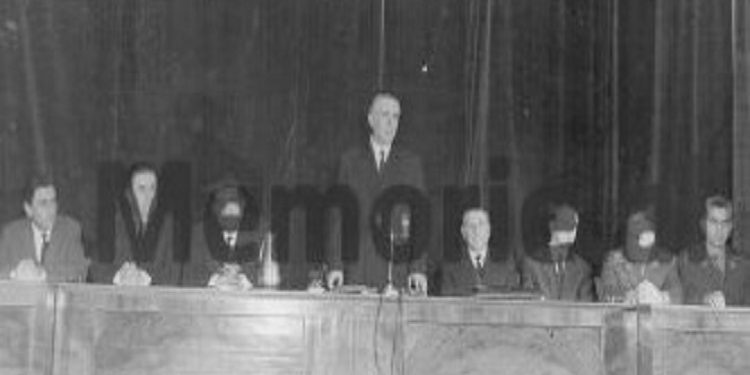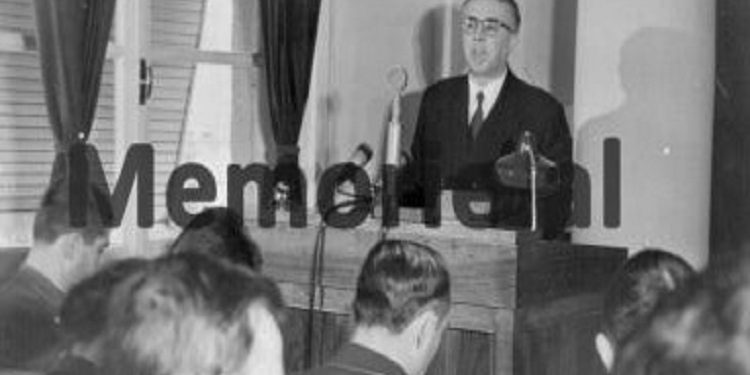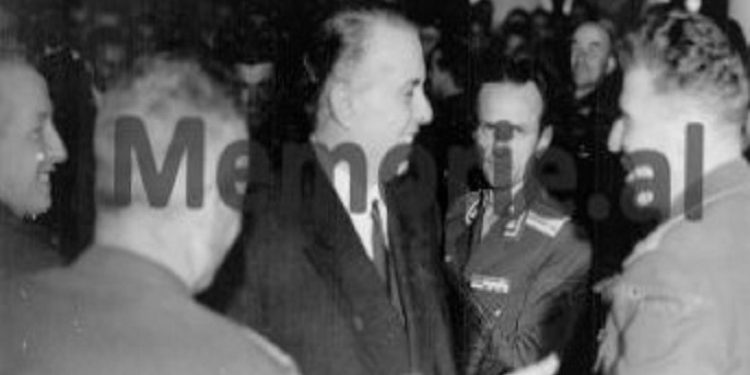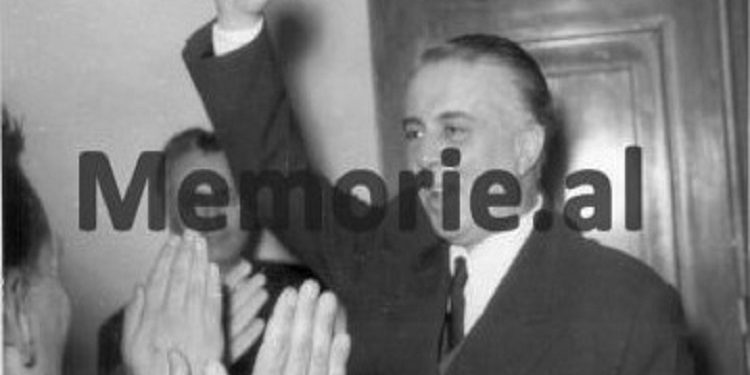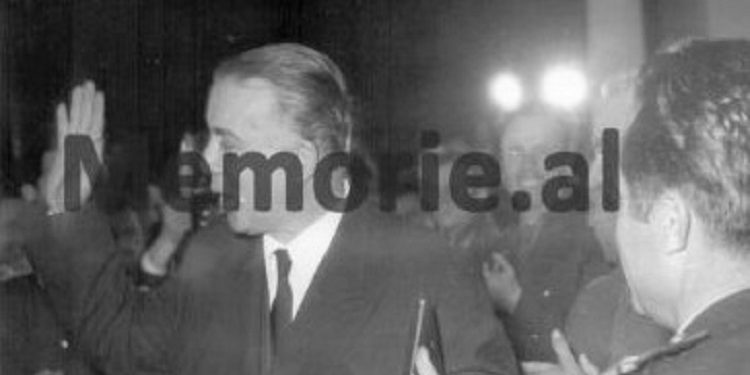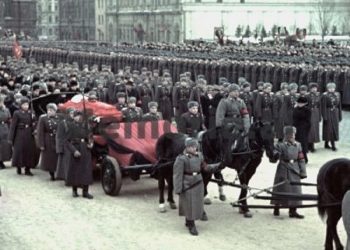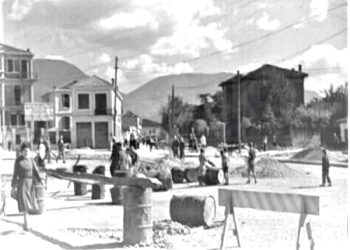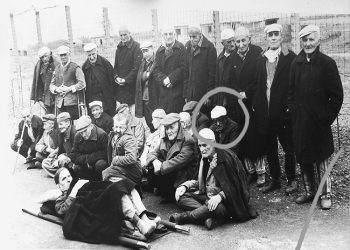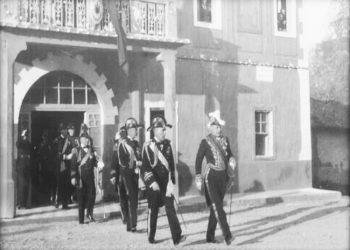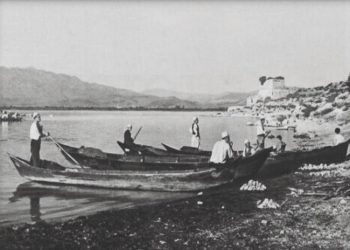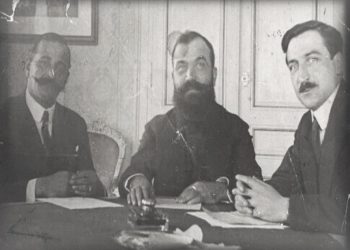Memorie.al publishes for the first time some rare photos of the meeting of the Central Committee of the Albanian Labor Party, with senior exponents of the Ministry of People’s Defense, and the Ministry of Internal Affairs, held on March 6, 1966 , where the first secretary of the Central Committee of the ALP, Enver Hoxha discussed in the presence of senior military, the issue of the final abolition of the rank system by the Armed Forces of the People’s Republic of Albania.
Judging by the unanimous decision taken to abolish the rank system after the publication of the so-called ‘Open Letter of the Central Committee of the ALP’, sent to officials, workers, the military, and the cooperative peasantry, it is clear that the meeting was merely a formality, as the approval for the removal of ranks and the appointment of political commissars in the ranks of the Armed Forces of the Albanian Army, had already been obtained.
In these unpublished images, high-ranking military officials from the Ministry of National Defense and the Ministry of Internal Affairs (including generals and colonels) are clearly seen, who enthusiastically approve of the introduction of a Chinese army and police system without ranks, where the role of commander automatically fell and the role of commissars rose, under the famous slogan “Party in command”, which turned the army from a professional to an armed force dominated by ideology.
This system, which at the time, should be emphasized that was unique in the world, because apart from the army of the People’s Republic of China, it would be appropriated only by Albania, and no armed force of any other country in the world. Although the decision of Enver Hoxha and the senior leadership of the ALP to abolish the rank system in the Albanian Army and the Ministry of Internal Affairs, was “enthusiastically received” by the military, I cause a lot of dissatisfaction in their ranks, but that thing was silent.
The only major military man, even with the rank of major general, who opposed the abolition of ranks in the Army, was Halim Xhelo, who at the time held the position of Director of Army Security at the Ministry of Internal Affairs. But his opposition was not open, but through an anonymous letter sent to Enver Hoxha, where in addition to the problem of removal of ranks, he raised a number of other problems for the political line that was being followed at that time by the senior leadership of the ALP. and the miserable economic situation to which she had taken the country.
But that anonymous letter was discovered by the typewriter with which it was written and Major General Halim Xhelo Koçiu (originally from the Duchy of Vlora), was arrested and sentenced to 25 years in prison, but he died in Burrel prison in 1974, in circumstances that even today remain unclear.
Another senior military man who was convicted of openly opposing the ALP leadership’s decision to remove him from rank was Colonel Dilaver Radeshi (originally from the village of Radesh in Skrapar district), who was a military scholar and historian. , graduated in the former Soviet Union. Colonel Radëshi was demonstratively arrested at a meeting held at the Central Military House in Tirana, and served his sentence mainly in Burrel prison from where he was released in 1990 and died a few years later at his home in the city of Korça.
The abolition of the rank system in the Albanian Army and the Ministry of Internal Affairs is said to have been done by Enver Hoxha, as he was afraid of the senior military, where most of them had studied and graduated in the former Soviet Union, who according to paranoia of the Albanian communist dictator, at any moment they could “break allegiance” to the Party and organize a possible “coup”.
But the removal of the ranks was only the ‘first step’ taken by Enver Hoxha to put the Albanian Army under pressure and full control, as the real tragedy over the senior military of the Ministry of People’s Defense and the Ministry of Internal Affairs would take several years. Later. Exactly in the years 1974 – ’75 the Army would be hit first, with the elimination of the main trio Balluku-Dume-Çako, (who were sentenced to death and executed in 1975) and in the years 1982 – ’83 it would end with the elimination of the leading caste of the Ministry of Internal Affairs, with the death penalty and the shooting of the trio: Kadri Hazbiu, Feçor Shehu and LLambi Peçini. /Memorie.al




